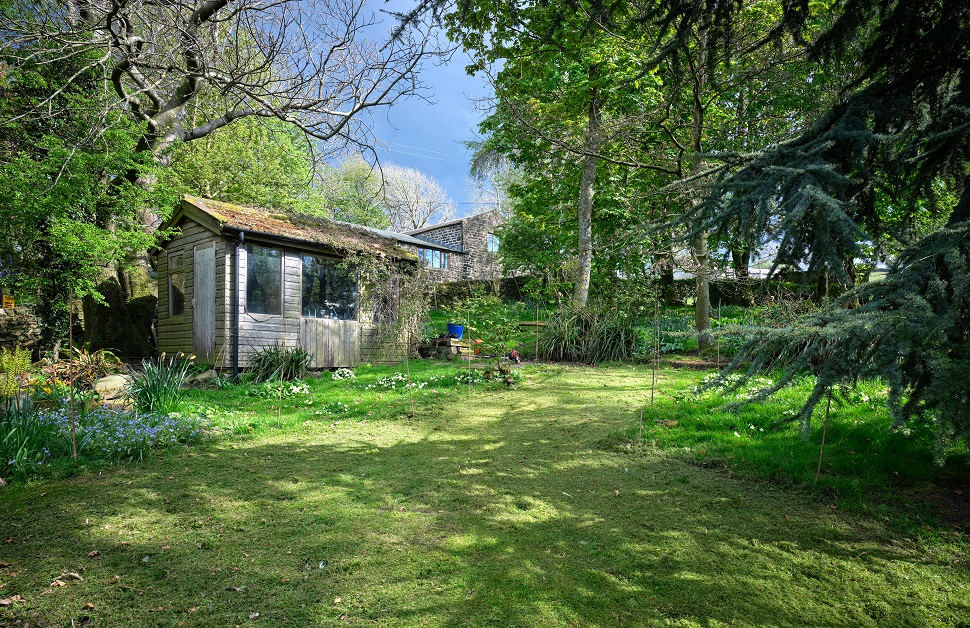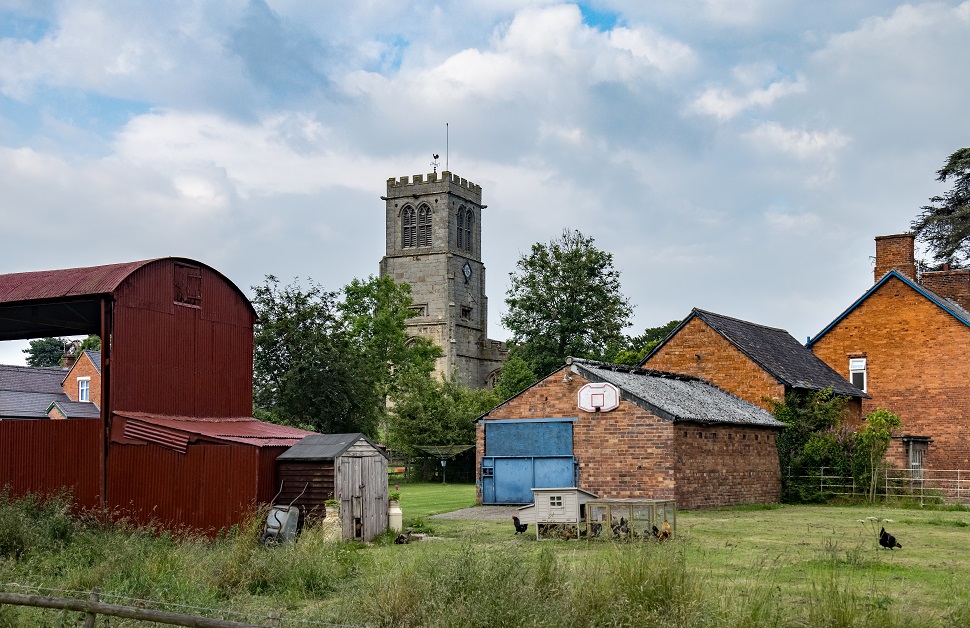
The appeal of the UK’s green spaces is at an all-time high following the COVID-19 pandemic, and prices have risen accordingly as more people seek a rural lifestyle. Demand for houses with land has soared and many buyers are looking towards various parts of the UK, either to utilise existing rural properties or target sections of land or rural properties that can be developed to suit a different purpose.
Likewise, another side effect of the pandemic that encouraged potential buyers to consider investing in smallholdings for sale was the growing trend of working from home – something that we’ve seen become far more commonplace even after restrictions were lifted.
It also meant that, without a need to remain within a certain area based on where their place of work was situated, employees of businesses across the country could opt to work remotely from numerous locations, widening their search areas as spending five days a week in the office became outdated for many occupations.
Between these factors and other important considerations such as the reliability of broadband in certain areas, the concept of investing in smallholdings for sale has firmly been brought to the spotlight. Traditional smallholding buyers now face greater competition from a range of purchasers and rising land values in some areas is inevitably pushing up the price of smallholdings.
Below, we look at the potential uses for smallholdings before detailing the likely cost of buying a smallholding based on desirable locations and how you can take the first step in the purchasing process.
Who purchases smallholdings?
Smallholdings attract different types of buyers, ranging from those who simply want subsistence living from the land to others seeking a commercial enterprise. Previously, it appeared to many people like investing in a rural property would mean targeting existing properties for sale that are based near to countryside. But as the option of purchasing a rural piece of land made it possible to live deep within the countryside, the opportunity to buy a smallholding over existing properties for sale has been a welcome alternative.
A certain inevitability from owning land is that it must be managed correctly, taking a necessary level of expertise into account. For instance, if the aim is to grow produce, the soil quality is important and ideally needs to be well-drained with a water supply. For buyers keen to live in the countryside but not farm the land – often due to a lack of desire, time or knowledge – contract farming arrangements with nearby farmers may provide a solution. Within this scenario, a prior understanding between the buyer and a neighbouring farmer would cause the farmer to undertake the sowing and harvesting operations in exchange for a share of the accrued profits.
Alternatively, more substantial or valuable smallholdings may attract a potential market of environmental buyers. Instead of buying smallholdings with a view to turn a profit or even simply make the first step in developing an idyllic residential property that could be utilised for remote working, environmentally minded buyers may be interested in a smallholding to protect or enhance natural assets such as forestry while considering feasible biodiversity net gain opportunities.
Get Your Free Quote
Do you need a quote for ecology surveys, tree surveys or biodiversity net gain? Contact us for your free quote.
Commercial options
Location is vital in assessing opportunities for alternative income streams. It is important to investigate potential markets to identify areas to capitalise, particularly focusing on any that could currently be under-provided. For example, consideration could be given to renting out land for grazing, providing livery stabling or creating tourist ventures such as camp sites or holiday accommodation. Likewise, vacant buildings could potentially be converted, subject to planning consent, and rented out for a variety of tourism or businesses uses, such as local craft enterprises. Depending on your budget, buying a smallholding in an attractive, popular area and utilising it for a customer base that is already drawn to the location could be low hanging fruit for a would-be buyer.
If the holding can grow vegetables, proximity to farmers’ markets, other types of market and tourist hubs is potentially impactful. Sales from the holding might prove workable depending on access and the level of passing traffic. Selling to hotels, niche caterers and restaurants may also be advantageous. Rearing stock may be viable depending on the breed and the land. Hardy native breeds, for instance, can be ideal as they are capable of living outside all year round and typically require minimal husbandry.

Smallholding for sale in the UK
If you are interested in buying a smallholding for staging a commercial land development, developing your own private residential property or for environmental reasons, choosing a suitable location across the UK is key. The decision to target a specific smallholding is likely to be based on a number of factors including your budget, details and requirements of your project, and the necessary land size that would be needed to complete your project successfully.
For more information on buying a smallholding in the UK, we’ve provided an overview of England, Scotland, Wales and Northern Ireland below:
Smallholding for sale in England
Although somewhat urban and developed compared to the rest of the home nations, England has an extensive selection of attractive countryside locations across its 130,279 km². With Berkshire, Gloucestershire, Hertfordshire, Oxfordshire, Somerset, Suffolk and Surrey being just a handful of worthy examples, figures from the Office for National Statistics’ UK Environmental Accounts indicate that as much as 93% of the country is technically non-urban.
According to analysis from Farmers Weekly, each English region recorded at least 90 land sales between 2014 and 2018, with the East of England recording the highest number of sales, racking up a total of 234 within this period. Across the entirety of England, 1,166 plots of farmland were sold between this span of four-years, and the cost of land varied significantly from region to region. For instance, the average price of pasture land was above £6,000 per acre for every region except the North East, and the average cost of pasture land in South East England was the highest, slightly exceeding £8,000 per acre.
Smallholding for sale in Scotland
With a land mass that is 95% rural, Scotland is widely recognised as a visually stunning tourist destination. While the towns and cities – predominantly Glasgow and Edinburgh – bring millions of visitors to Scotland annually, the Scottish Highlands are seemingly endless and house a multitude of stunning sights. Notable examples include Ben Nevis, Cairngorms, Glen Coe, the Isle of Skye, Loch Ness, Loch Nevis, Loch Sunart, the Trossachs and Ullapool.
Estate agents Knight Frank claim that the average cost of pasture land in Scotland dropped in 2018. Currently, the average price of pasture land in Scotland is around £2,539 per acre, and the unweighted average of all land types in Scotland is around £4,271 per acre.
Smallholding for sale in Wales
In Wales, an estimated one in three residents live in an area that is classed as rural. Wales has distinct rural appeal, with incredible organic locations across the Brecon Beacons, Carmarthenshire, the Gower Peninsula, Pembrokeshire, Portmeirion and Snowdonia. Likewise, North Wales, West Wales, East Wales, Mid Wales and South Wales all entertain a seemingly endless array of unnamed countryside hotspots. It is also an often preferred location to England – both for buying land or existing rural properties – due to typically offering greater value for money.
Statistics sourced by Farmers Weekly from estate agent Knight Frank state that the average cost of pasture land in Wales is around £5,000 per acre, with prime pasture land being closer to £7,514 per acre and poor pasture land being more likely to fall into the £3,500 range.
Smallholding for sale in Northern Ireland
An estimated 37% of the population of Northern Ireland live in countryside areas. The scenic views led to it being the filming location of multiple films and TV shows, with Game of Thrones standing as a notable example that utilised the country’s sublime natural setting. Of the many rural areas in Northern Ireland, the most popular include Dunluce Castle, Giant’s Causeway, Lough Beg and Mourne Mountains.
Analysis on the price of land in Northern Ireland from estate agents Savills indicates that all types of land costs an average of £10,000 per acre. However, the market was significantly delayed by COVID-19, and now that people are able to buy land once again, it’s predicted that the gulf in price between arable and pasture land is set to expand.
Smallholding for sale near me
Understanding the average price of land based on country, region or more specified areas will simplify the process of budgeting accordingly for the purchase of a smallholding. Unfortunately, the majority of estate agents don’t cater to people looking to buy land, with many websites failing to include a section on available smallholdings for sale. You can, however, find all currently listed smallholdings on the Addlands website. Simply enter in the desired area, price range and land type, and all current listings will be displayed.
You can then make the vital next step in purchasing a smallholding, and if you need any assessments as part of a development project, Arbtech has a broad selection of topographical surveys, ecology surveys, protected species surveys and tree surveys to help you achieve planning permission and progress your project.

